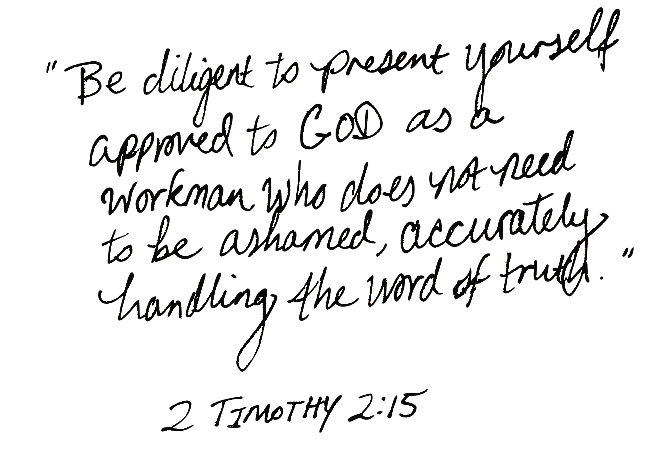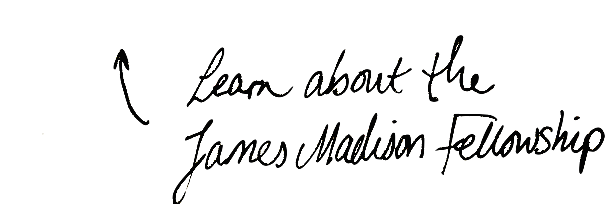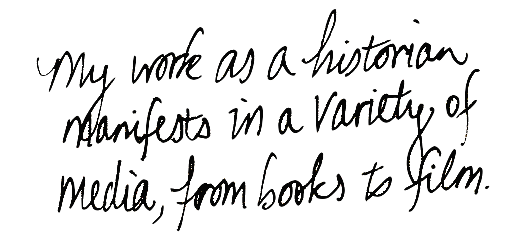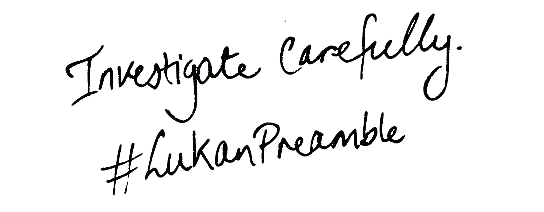
Photo by Linda Stelter (Birmingham News)
Berlinski vs. Hitchens: An agnostic secular Jew and an atheist debate the implications of a purely secular society.
BIRMINGHAM, Ala. — On Sept. 7, David Berlinski and Christopher Hitchens met for a debate in Birmingham, Alabama. Hosted by the Fixed Point Foundation, the debate premise was “Atheism Poisons Everything,” a spin off of the subtitle of Hitchens’ book, God Is Not Great: How Religion Poisons Everything.
Arguing the affirmative was David Berlinski, a secular Jew and agnostic whose intellectual background ranges from mathematics to molecular biology. Arguing the negative was Christopher Hitchens, a prominent atheist and seasoned polemical journalist.
I attended the debate with my father, my brother Joseph and my good friend Lindy Abbott. We were among the sold-out audience of 1,200. Hitchens appeared to be the main attraction, as it was one of the few appearances he would be able to make because of his battle with esophageal cancer.
In terms of my expectations for the debate, I was interested in listening to Darwinian critic Berlinski, who is such an anomaly among his colleagues that I’ve taken to referring to him as the S.E. Cupp of the scientific world (and vice versa).
But I was particularly looking forward to hearing Hitchens explain why atheism isn’t toxic. Yet his responses did not clearly defend atheism as much as condemn religion to be infinitely worse.
Berlinski seemed to have the upper hand in most of the debate because of this. He cited a social history of atheism, which brought him to the conclusion, “I submit to you that [regarding the notable regimes in that history] the 20th century was one of unparalleled stupidity, brutality and violence.”
Berlinski said that the deplorable regimes of that century were ruled by leaders whose agendas were influenced by atheism, notably because they believed in “no greater power than their own.” He also said they derived support from “crackpot theories” in the field of science.
Furthermore, Berlinski said the “inquiry about atheism is not necessary for scientific [progress]” and that the “serious sciences” (math and physics) do not argue for or against God. He pointed out that Christianity developed the Western scientific tradition (even Hitchens conceded this) and reasoned that atheism ultimately has a “deforming influence on science.” To explain consistency in the universe and find stability in civilization, Berlinski said that the Judeo-Christian view is the most reasonable and sufficient for society.
Hitchens’ response was a jab at a creator God. If such a designer exists, he argued, then “he must be a piteously wasteful, capricious designer,” because the incredibly vast universe is evidently lifeless except for our tiny planet. (“Just because our part of the universe is small doesn’t mean it isn’t the center,” countered Berlinski).
Hitchens described a religious person as “wearing a heavy coat, dragging a ball and chain,” with no ambition for the present world. Being an atheist, argued Hitchens, is not a political or moral position – it is compatible with many different ideologies.
When asked which of Jesus’ teachings he believed to be evil, Hitchens responded that the “concept of vicarious redemption is a disgusting and immoral doctrine.” He went on to say that the “moral rot of Christianity is vicarious forgiveness.”
At one point, moderator Larry Taunton asked Berlinski an intriguing hypothetical question from the list: Would he prefer a secular or an Islamic Europe?
“I have no clue,” said Berlinski. “The question has no provocative sense of urgency.”
Hitchens was eager to assert what his answer would be, which gave him the opportunity to appear more decisive. But neither man’s response was satisfying to me.
As a woman, I heard the question a little differently. Would I rather live in a society in which I’m at risk of being locked away and married to some strange sheikh or live in a society in which I’m at risk of being forced to have an abortion because I’m carrying an unwanted specimen of the human race? Neither, to be quite honest.
One may argue that the latter is not the result of atheist thought. Well, no, not every atheist would condone such a thing. Like Hitchens said, atheism isn’t a moral view, but rather something compatible with a range of convictions. Therein lies the inefficacy of atheism as a unified foundation for a society. That is probably why Richard Dawkins calls himself a “cultural Christian.”
The hypothetical question made the entire premise of the debate seem to unravel.
If Hitchens was right in saying that the examples of atheistic regimes weren’t actually governed by atheism, then a purely secular society has never successfully existed and the debate, in a legal sense, has no ripeness.
If Berlinski was right in tracing harmful statist regimes to atheistic thought, then there are no long-standing examples to emulate – and certainly no appealing ones. China is officially atheist, but it is no beacon of human rights and liberties. Communism is apparently the only system of government which can sustain a secular society, but the fruit of its soil can hardly be called pleasant.
Although fascinating, the premise “Atheism Poisons Everything” was awfully vague (like Hitchens’ premise that religion poisons everything). Does anything poison everything?
One could say, in the abstract, that atheism poisons everything, because the Luciferian concept of tolerating no higher power than one’s self has been a prime motivator of secularist regimes – and disbelief in a higher power is atheistic. In his opening remarks, Berlinski said, “I’m perfectly aware, as you should be aware, that the proposition that atheism poisons everything is perfectly compatible with the proposition that religion poisons something.”
Religion, like any cultural system of man, can be poisonous when it becomes an oppressive, formulaic organization.
But being religiously against religion is at least as toxic, and this is what Berlinski perceives to be the problem with New Atheism.
The goal of the debate was to discern the implications of a secular society. It was an amazing thing to observe, really: A heretical debate carried out safely in a truly free country. The United States of America is not a secular state, nor is it a Church state. Israel is regarded as one of the pillars of the West, and it was the Judeo-Christian principles of human dignity that arose from it that cultured such advances as the field of science and the U.S. Constitution’s precious First Amendment:
“Congress shall make no law respecting an establishment of religion, or prohibiting the free exercise thereof…”
No religious state or secular state could improve that. Forced belief and forced unbelief are equally insufferable.
_____________
The debate will be aired by C-SPAN2 at 6 p.m. CST Saturday, Sept. 18 and 7 a.m. CST Sunday, Sept. 19. You can also pre-order the DVD and read more about the questions raised during the debate from www.fixed-point.org.
_____________
Read more of Amanda’s column Not Your Average Read in the Communities at The Washington Times.
















I feel I must point out that you are completely misrepresenting Dawkin’s “cultural Christian quote.”
You write “Therein lies the inefficacy of atheism as a unified foundation for a society. That is probably why Richard Dawkins calls himself a “cultural Christian.”
What Dawkins is talking about (and it is made very clear in the Youtube video you link to) is the warm traditions that have been adopted by our society. You don’t need to believe in order to have fun at Christmas time and all that. He’s a cultural Christian because he still “enjoys singing carols,” not because Christianity has a better foundation for morals or society than atheism.
The thing is, neither atheism nor religion needs to be a unified foundation to society. The difference is that religion always tries to be just that. Atheism is simply a position that no claim about the existence of God can be accepted until there is proof.
Katie,
I am not completely misrepresenting Dawkins’ quote, though it might have helped if I could have included more explanatory sentences in that paragraph.
I know that Dawkins was, simply enough, referencing the enjoyable traditions that have Christian roots. He did not have my conclusion or intentions in mind when he made that statement. I was just taking the scenario a step further.
Why do atheists such as Dawkins hold to any traditions whatsoever – especially moral ones? Do those convictions come from their disbelief in God? Doubt it. Rather, the convictions they have were absorbed from the culture they were born into – in this case, mostly Christian. Although Dawkins seems to think that we can find a basis for morality in science – a Darwinian basis – if we dig deep enough, that is irrelevant as far as current society is concerned.
Atheists (specifically, those of American and British heritage) actually owe the moral standards woven into law and government to their Christian predecessors. A disbelief in a higher power (God) is so vague that a society could not thrive if it was founded upon that premise. That is why S.E. Cupp and David Berlinski respect Judeo-Christian values.
I don’t think you have any idea on what secularism is:
From the OED:
1. The doctrine that morality should be based solely on regard to the well-being of mankind in the present life, to the exclusion of all considerations drawn from belief in God or in a future state.
From Wikipedia:
Secularism is the concept that government or other entities should exist separately from religion and/or religious beliefs.
So no, a secular government will not force you to have an abortion. That is a gross misrepresentation of what a secular government is and a disservice to all the readers who read you article.
Dear Amanda.
Are you retarded? I’m less intelligent after reading that awful mess, and it depresses me to no end that I can’t unread it.
How the **** can you expect atheism to be a unified foundation for a society? Of course we need more than a disbelief in gods to create a flourishing society. Atheism has no content.
And, yes, you did actually COMPLETELY misrepresent Dawkins’ statements about being a cultural christian. He means that he likes the xmas carols and the like. You say that he’s a cultural christian because of the “the inefficacy of atheism as a unified foundation for a society.” Well, if you think all atheism is lacking is catchy xmas carols, then you have more belief in atheism as a unified foundation for society than I have. But that’s not what you meant, right?
You’re also very happy to talk about secularism, without having any knowledge of what ‘secular’ means. Please don’t do that. Is it that hard to look it up first?
The level of intellectual paralysis on display in your writings is, frankly, terrifying. Thank you for ****ing up my lunch.
A big, juicy “**** off!” from Norway.
Ps.
Even though I doubt that any offspring of yours would be able to contribute anything useful to society (unless you mated with Sam Harris), I still would never condone anyone forcing you to have an abortion. I don’t know any atheists who would. Not even Peter Singer, whose views always seem to make you people terrified, would propose that as a healthy moral precept.
Where the hell do you get this shit from? I really would like to know.
But…China is atheistic and uh…thriving. Oh sure, I find China to be deplorable with concerns to human rights (among other things), but there’s a lot of people fearing the growing of China.
Judeo-Christian values are, in fact, not the cornerstone of societies. There were plenty of other religions predating Christianity that managed difficult concepts such as “don’t kill each other.”
The goal here isn’t forming an atheistic society, but encouraging an organic rejection of religious thought. As I continue to say: browbeating someone into your beliefs is temporary in the short-term and self-defeating in the long.
Azou wrote the following: ,b>As I continue to say: browbeating someone into your beliefs is temporary in the short-term and self-defeating in the long.
I think that pretty well explains why religion is on the decline. It’s been brow-beating people for a very long time.
Oh my. If I am to believe that atheists are decent people, some commenting on this article are certainly not that. Magnus Solberg, you are a rude, nasty, woman-hating pathetic excuse for humanity. And I am putting this as kindly as I can. You sound like you are possessed, but not by God. You should be ashamed of yourself. If you have differences of opinion you should articulate yourself better than that, and with some shred of decency. I would be pleased to have you go and live in one of those atheistic countries such as China, Venezuala, (you and Chavez would get along great) or North Korea. In those fine countries they abuse their people grossly. China is “thriving” because they treat their people like chattel and yet have figured out that capitalism makes money. So they have lured the people of the U.S. into buying their cheap goods by sticking them in all the discount stores. They are smart enough to do that, on the backs of their sweat-shop laborers. But they do it without any conscience what-so-ever. Kind of like Mr. Magnus Solberg. May Amanda keep writing and may you keep reading. Her work is obviously the only decent thing you have read. And obviously she strikes a nerve that you can’t handle.
Magnus Solberg, I’m sorry, but you are a COMPLETE disgusting idiot!!!!!
That last pointless “P.S.” to your other comment, was stupid and totally immature…You make Norway look bad. (If that’s even where you’re from…pssh.)
I respect anyone for making a point, but throwing in stupid insults and punches doesn’t make you smart or clever. It makes you look like what you are – a jealous, childish idiot that has never, and will never, get very far in life.
Thank you, and have a good evening…or day, or whatever it is in Norway…bahahaha!!!!!!!!! =P
-Lee
To thrive does not mean “to be respectful of human rights.” Many nations thrive off the sweat and blood of their oppressed citizenry.
Curious to see that because the tone is not “nice” people would say there was no message. I read what “magnus solberg” wrote, and I see these clear, and correct, points:
1. “Atheism” is not supposed to be the foundation of anything. It is just a description of those who don’t believe in gods.
2. Amanda did misrepresent Dawkins (she did).
3. Amanda does not know what secularism is (she doesn’t, so good point).
4. There is no condoning of forcing anybody to have an abortion. Most atheists would not do such thing (force you to have an abortion).
Insults here and there, sure. But why miss the points when there are points? Intellectual laziness?
As for morals. Sorry to break this onto you, but Christian values? Amanda can write and talk back to men, right? That is not a Christian “moral value.” We have morals that supersede much of the idiocy in the Bible, thank gods. We don’t owe anything to Christian values. Our current morals are the direct results of technological progress that has allowed us to leave aside a bit the urge to survive and thus notice that we have not been quite just with some group or another. Enough to learn and notice that slavery is not nice (not something the Bible would tell us). Enough to notice that other people’s are … people! In so learning, those oppressed have fought and gained their rights, while Christians on both sides were arguing with the same Bibles for opposite points.
In the end, it was our basic instincts for fairness and our safer environments that made the many tricks. Not Christianity as such.
On another note. Please, evolution is a natural process, not a philosophy of life. I would not try to derive ethics from it. Would you use gravitation to derive your ethics?
If you don’t mind, let’s recap, people…
What does “secular” mean in the context of this discussion?
Hint #1: A central point of the debate was the discussion, “What are the implications of a purely secular society?”
Hint #2: David Berlinski was asked if he would rather live in a “secular” Europe or an “Islamic” Europe. If secular meant “like the United States with separation of Church and State,” the answer would have been easy. Berlinski himself is a self-professed secular Jew and agnostic.
Hint #3: Christopher Hitchens never once called out the U.S. to be a model of the secularism that the debate was all about. If that was really what was meant by the use of the word “secular” in this case, then Hitchens could have ended the debate right then and there.
Hint #4: In writing about the debate’s use of the word secular, I remained consistent with that use of the word.
Hint #5: The word “secular” is literally the opposite of the word “sacred”.
This leads us to the subject of forced abortions and sterilization in China.
When I attempted to answer for myself the question that was posed to Dr. Berlinski, I did not try to figure out what every single Islamist is like or what every single atheist is like. Instead, I honestly tried to envision what life would be like if I lived in an Islamic society or a secular society (those were, after all, the choices offered in the question – not choices of my own). What were the best and worst scenarios that I could imagine happening to me according to laws and demands within such societies?
In order to do so, I had to envision places based upon real-world, historical precedents. For a purely secular society – a society where no right can be sacred – the closest environment I could find was that of China, which is officially atheist. The human rights woes of China were not hard to discover.
Thus, I was not condemning individual atheists, but trying to determine what risks were involved in residing within a society based upon the idea that morality evolves over time. There would be a looming possibility that some rights I had one moment could be gone in thirty years due to an evolved concept of those rights.
Amanda,
You DO live in a society in which morality evolves over time. The fact that thinking about a society that might reject moral absolutes would immediately make you think about forced abortions, really is scary.
Scandinavian countries are secular and, to a much greater degree than USA or Britain, atheist. We do ok. Really, you should check it out sometime. The World map of Happiness from The University of Leicester places Denmark at the top. The University of Leicester are not alone in doing that.
There is such a thing as state religion, and it can be just as damaging as “regular” religion. Learn about it.
You wrote in your comment above:
“What were the best and worst scenarios that I could imagine happening to me according to laws and demands within such societies?”
And here’s what you came up with:
“Would I rather live in a society in which I’m at risk of being locked away and married to some strange sheikh or live in a society in which I’m at risk of being forced to have an abortion because I’m carrying an unwanted specimen of the human race? Neither, to be quite honest”
So the worst thing that could happen to you in an islamic society is being locked away and married to some “sheikh”? There are several examples of 10 year old girls being forced to marry some relative, being raped repeatedly before dying while giving birth to twins. Your example about a secular society is bullshit, while your example about an islamic society, clearly is underestimating the dangers of islam.
You write:
“not every atheist would condone such a thing.”, meaning forced abortions. Statements like “not every muslim condones honor killings of ten year old girls” or “not every christian supports the killing of abortion doctors”, while infinitely misleading, are still much closer to the truth than your statement above. I’m sure you would object to both of my examples above. Why not apply that same critical approach to your own writings?
And where did you mention “the best” thing that could happen to you in those societies?
You are a very dishonest person. Please stop writing. Not trying to force you to stop. I’ll just try begging on my knees.
I didn’t want to go into gruesome details. Perhaps this will get my point across better:
http://abcnews.go.com/WN/MindMoodNews/bibi-ayesha-honored-enduring-heart-award-california-debuts/story?id=11853158
What is your point here?
Islam is against every bit of injustice. Islam is the only religion from one true god almighty, From Adam to the last human being.
In Islamic law no-one can forcefully marry other girl/woman or man. That marriage will be considered invalid if one of the bride or the groom did not agreed .
It is the secular culture or local customs & prejudices which prevents islam from being implemented , those are creating the problems.
If u have any question send me e-mail, i can give satisfactory answers with facts, trust me . Send me any question.
Islam will give u everything that is good for u in this world and in the to come after death.
watch the video –
Those hindu bali women r topless & they have economical power & free to move. But can this type of culture create any great civilization. No thy did not. Likewise there r many christian/Hindu/Buddhist countries of the world which gives all the right to all the women , but still they r poor, corrupted, killing each other. All because of corruption , greed & no fear of God.
Islam is the solution for humanity- http://www.peacetv.tv/
Hey just wanted to give you a quick heads up and let you know a few of the images aren’t loading correctly. I’m not sure why but I think its a linking issue. I’ve tried it in two different browsers and both show the same outcome.st wanted to give you a quick heads up and let you know a few of the images aren’t loading correctly. I’m not sure why but I think its a linking issue. I’ve tried it in two different browsers and both show the same outcome.
This design is spThis design is spectacular! You obviously know how to keep a reader entertained. Between your wit and your videos, I was almost moved to start my own blog (well, almost…HaHa!) Wonderful job. I really enjoyed what you had to say, and more than that, how you presented it. Too cool!ectacular! You obviously know how to keep a reader entertained. Between your wit and your videos, I was almost moved to start my own blog (well, almost…HaHa!) Wonderful job. I really enjoyed what you had to say, and more than that, how you presented it. Too cool!
Houston Roofing – Call 281-816-3669 for fast service. Whether your roof was damaged in a storm, or is simply outdated, we can help! Full emergency Houston ro…